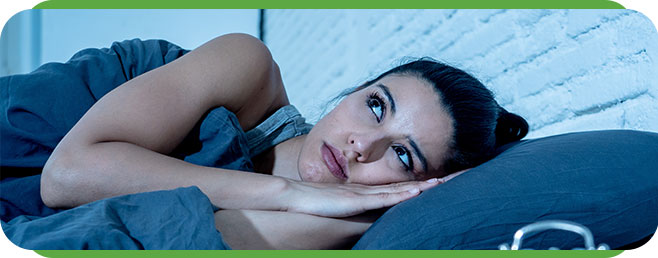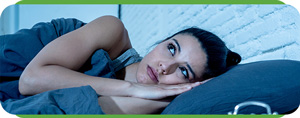Multiple Risk Factors & Implications


Sleep Disordered Breathing (SDB) is a potentially fatal condition caused by airway obstruction occurring during sleep. It varies in severity from simple snoring (the indication of a problem) to Upper Airway Resistance Syndrome (UARS), accompanied by gastroesophageal reflux, depression, and asthma, and Obstructive Sleep Apnea (OSA), the complete and repeated collapse of the airway numerous times throughout the duration of sleep.
Dentists, physicians, and other specialists consider the percentage of the population suffering from Sleep Disordered Breathing to be an epidemic. What kinds of risk factors and implications are associated with Sleep Disordered Breathing?
Obesity is the most obvious risk factor as well as an implication of Sleep Disordered Breathing. It is, in fact, part of a vicious cycle. Fat that collects around the neck and abdomen puts weight on the airway and lungs, making it difficult to breathe, causing SDB. SDB is thought to bring about obesity because it causes insulin resistance, glucose intolerance, and metabolic disorders. Thirty percent of pregnant women are subject to nasal swelling that can result in snoring and sleep apnea. The lack of oxygen disrupts their sleep and can affect the fetus.
Aging is another risk factor. More than 40 percent of adults over age 40 snore. According to the American Academy of Sleep Medicine, one in four people over age 60 suffers from Sleep Disordered Breathing. Women entering menopause, ceasing to produce progesterone and estrogen, hormones that stimulate breathing and distribute fat, respectively, are very likely to suffer from Sleep Disordered Breathing. According to the National Sleep Foundation, one in four women over 65 has sleep apnea.
Hormone imbalances are like obesity in that they are a risk factor as well as an implication of SDB. In one study, 44 percent of women with Polycystic Ovarian Syndrome (PCOS) were shown to have OSA as compared to 6 percent of women of matched ages and weights.
Cardiovascular Disease is a similar problem—it both causes and is the result of Sleep Disordered Breathing. During non-REM sleep, blood pressure and heart rate drop to levels much lower than typical awake levels—the body’s chance for relaxation. The drop in oxygen levels caused by SDB and the increase in heart rate and blood pressure due to frequent awakenings puts stress on the heart. Blood pressure rises during the night and translates into permanent higher blood pressure during the day, causing hypertension. A connection between Cardiovascular Disease, Alzheimer’s disease and SDB was also recently discovered.
Coronary Artery Disease (CAD) results from constricted arteries or atherosclerosis. OSA causes a drop in blood oxygen levels and a rise in heart rate and blood pressure. As a result, the heart is forced to work harder. Simultaneously, the heart needs more oxygen due to the OSA and the arteries are narrowed due to the CAD. The heart responds, trying to pump more blood through a smaller area, and strains the heart to such a degree that a heart attack could result.
A stroke occurs when the supply of blood and oxygen to the brain is either partially or completely cut off. In a person with OSA, blood flow and oxygen is already reduced, further exacerbating the likelihood of a stroke.
The above list is not a complete one. The health complications causing and resulting from Sleep Disordered Breathing are numerous and extensive. If you feel you may be suffering from SDB, contact your dentist or your physician immediately.

Additional Services You May Need
▸ KoalaKIDZzz®
▸ Sleep Apnea
▸ Snoring
▸ TMJ Disorder
▸ Fatigue
▸ Sleep Disorders
▸ Weight Loss
▸ CPAP Alternative
▸ Oral Appliances




